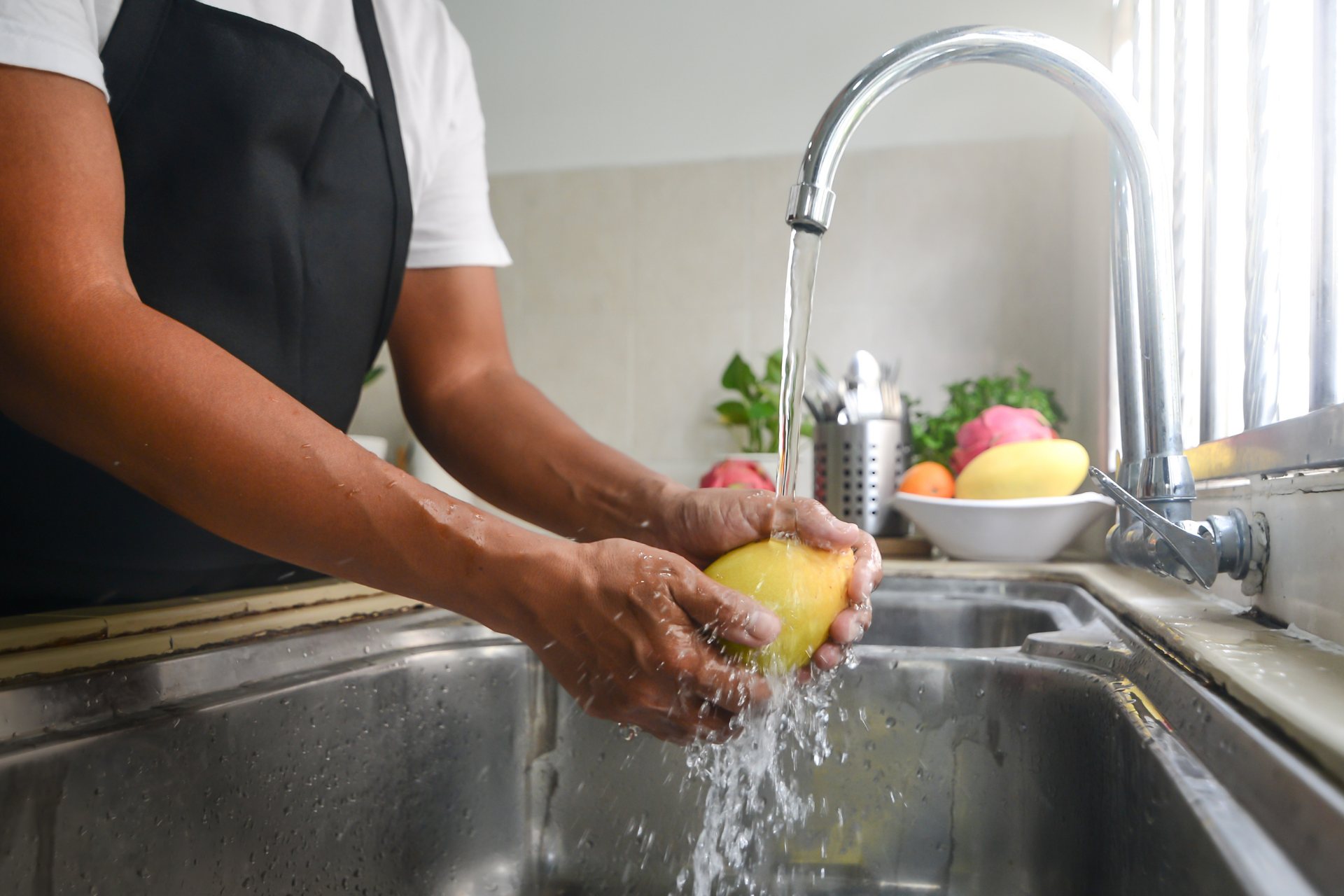
April 4, 2022
Contents
Water is a key part of life. Ensuring that your water is free of contaminants can seem like a daunting task, but there are many options to accommodate your specific needs to achieve the quality of water you are looking for. Options range from simple sediment filters to multi-stage water softening systems. Read on to learn if you need a water filtration system and what the benefits of water filtration systems are.
What are the signs that you may need a water filtration system in your home?
- Red or blue stains on porcelain fixtures
- Recurring or constant skin irritations
- Water spotting on glass shower doors or dishes
- Your water is cloudy, tastes bad, or has odors
- Continuous or frequent build-up on the aerators of your fixtures
Types of Water Filtration Systems
Reverse Osmosis System:
Reverse Osmosis Systems, also known as RO Systems, are one of the most common types of water filtration systems. Predominantly, an RO system supplies water to one or two fixtures. A separate slow-flow faucet is installed at the kitchen sink and you can have an additional line installed that connects to an ice maker.
RO Systems work by using the house’s water pressure to force water through a semipermeable membrane which only allows water to flow through one way while withholding particulates and contaminates. It then uses water to rinse out the membrane to get rid of the build-up of particles. The clean water moves through additional stages of filters to remove chlorine, balance alkalinity, and remove minerals such as calcium.
These systems are affordable, low-maintenance systems. Homeowners can easily handle the maintenance within 15 to 20 minutes once or twice a year. Depending on the amount of water used, the filters will need to be changed every six to twelve months.
RO Systems produce the cleanest water you can get. Water from a well-maintained RO System will typically have fewer dissolved solids than most bottled water.
There are whole house RO systems, however, they are very expensive, high maintenance and require all water lines to be pex with polycarbonate fittings.
Carbon Block Filter:
A carbon block filter is a whole-house water filter that is designed to go in the main water line of a house. Water will filter through the carbon block canister and then flow to all of the fixtures in the house. Different Carbon block water filter systems will offer different levels of filtration.
A carbon block filter will remove sediment, chlorine odors, fluoride, some metals and other contaminants with very minimal effect on the water pressure throughout the house. This is a very low-maintenance system. The filter will need to be replaced every six months to a year depending on the amount of water used and can be easily done by the homeowner. A carbon filter can be very beneficial to people with sensitive skin.
The carbon block filter does not remove biological contaminants, pesticides, heavy metals or other inorganic contaminants. A carbon block filter will not soften water, so water spots on the glass will still occur if you currently have that issue.
Water Softener and Filtration System:
A water softener and filtration system is an automated self-cleaning system that has built-in carbon filtration and built-in mineral remover. It removes chemicals and contaminants like chlorine, fluoride, pesticide, herbicides and some metals.
This is the lowest maintenance system. All you have to do is maintain the salt levels simply by adding a bag of salt from your local hardware store every few months. Every two weeks, the system will regenerate and self-clean by pulling salt from the salt tank into the softener tank. The salt will strip the minerals from the water and then will be washed out leaving behind no salt in your water.
There are additional options for well water systems that will remove iron, copper, heavy metals, inorganic contaminants and petroleum byproducts. There are also other options to remove biological contaminants, E. coli, cholera, and listeria.
Benefits of a water filtration system
- Helps the environment by lowering the waste of plastic bottles
- Extends the life of your appliances and plumbing systems
- Reduces the amount of soap scum in bathrooms and on clothes and dishes
- Improves the taste and quality of your drinking water
- Reduces the risk of consuming contaminated water at home
How to choose which water filtration system is right for your home:
To choose a water filtration system that will benefit you the most, start by determining what your needs are. Test your water supply to determine its quality and what type of contaminants are in it that need to be filtered out.
Next, evaluate the intended purpose of the water filtration system. Essentially, water filtration systems can be broken down into two categories, point of use and point of entry. A point-of-use system will filter water at the specific fixture it is installed on, a point-of-entry system will be installed on your main water supply line and will filter the water before it enters your home to disperse to each fixture. Are you solely looking to have clean drinking water? If so, a point-of-use system like Reverse Osmosis might be best for you. Are you looking for filtered water for the bathrooms, laundry room, outdoor spigots and kitchen? Then a point-of-entry system like a whole house filtration system might be best for you.
Finally, take into consideration your average daily water usage to help determine the size of filters and system you need. Research the different systems and brands. If you are not installing the system yourself use a licensed and insured plumbing company.
Contact Enduric Plumbing For Your Water Filtration System Needs
At Enduric Plumbing, we look at each unique situation and avoid a one size fits all approach when it comes to water filtration systems. We can assess your needs with in-home consultation and tailor a system that’s perfect for you. Call us at 336-829-1066 or contact us online to set up an appointment for the installation of a new water filtration system or maintenance on your current system.


